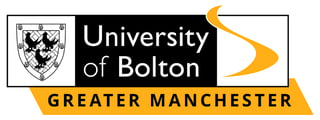Gap years can be used to enhance a CV, travel, learn new skills, volunteer, intern, and much more.
Gap years are often a hot topic, with certainly have a lot of mystery about what they can be advantageous or disadvantageous for.
They are sometimes integrated into courses as a sandwich year for work placements, or as a means to gain work experience in other areas to enhance skills for the final years of study. Particularly with work placements, this allows learners to get your foot in the door and network with potential future employers and industry professionals.
This time also gives students the opportunity to gain experiences in areas they might not have considered similar, such as a related industry or internationally. Students could study or work abroad, or sometimes just enjoy a break from study to return fresh for the final year of an undergraduate degree.
There are many reasons that learners might choose to study a gap year:
- have a break from study
- gain new skills/experiences
- earn money
- spend time deciding what you want to do
- undertake a work placement or volunteering
- a combination of the above
A year out isn’t an option that suits everyone – for some, it may be advisable not to take a break between studies. The advantages and disadvantages must be weighed up personally.
UCAS has prepared some information about the pros and cons of gap years that can be considered here.
Do your research before you commit to a gap year
Looking up travel advice and the best places to do gap years on the government websites is important so you can be sure the trip is safe and follows government guidelines, as well as see what kind of things you might need to prepare if working, studying, or travelling abroad. There are lots of different sites where you can get gap year ideas and inspiration.
Some of the different options you can do
- Volunteering – Support a worthwhile cause and gain valuable experience. Students could take part in a wildlife conservation project, teach children, or help build a school in a third-world country.
- Travel – Explore the world, discover new cultures, and develop independent living skills at the same time! Students could go backpacking across South East Asia, InterRail through Europe, or buy a round-the-world plane ticket!
- Paid employment – Earn money and gain new skills at home or aboard. Students could work on an outback farm in Australia, as a ski lift operator in Canada, or at a backpacker hostel in New Zealand.
- Work experience – If students want to gain relevant experience and skills for a particular career or subject they plan to study, you could consider a work placement or internship. These can last from a few weeks to a year. Depending on the type of contract on offer, this may or may not be salaried. These are very popular and competition for places is high, so early application is advised.
- Part-time courses – Why not take the opportunity to try something new? Students could take up a new language, learn how to programme, try a new sport or musical instrument, or learn a new practical skill, such as mechanics, carpentry, or cookery.
What is #UniAsItShouldBe? A University that puts its students and their needs first through a supportive learning environment. Welcome to the University of Bolton.
